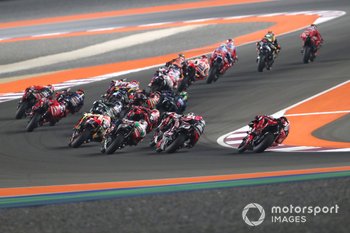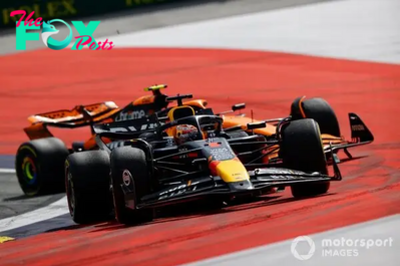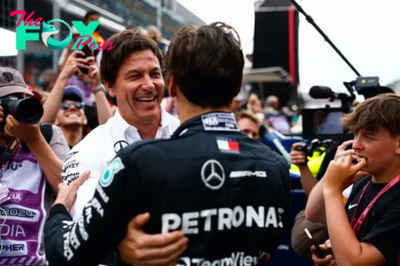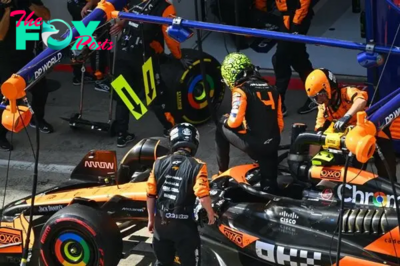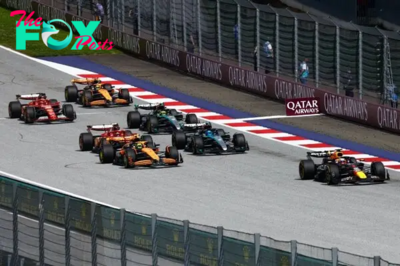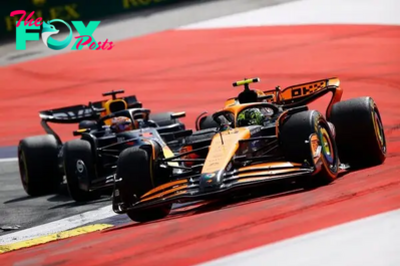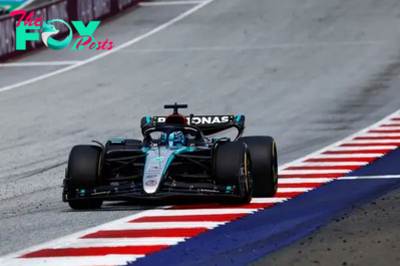F1 News
How Liberty’s Las Vegas F1 gamble paid off
Liberty convinced local authorities and major casinos to back the project and allow the city to be closed down, and for the first time the organisation also served as promoter of the event, taking on the associated financial risks.
There were logistical glitches along the way, not least the water valve cover that destroyed Carlos Sainz’s Ferrari chassis and led to practice ending in the early hours of Friday morning and being run without fans in attendance.
But, as always, what really matters is the bottom line. The financial impact both for the city and Liberty was always going to take a little time to fully assess, but now the sums have been done it’s apparent the event paid off for both parties.
When announcing its 2023 annual results in February, Liberty noted that even with extra costs associated with creating the event had boosted its figures.
Then last month Clark County released a detailed document that looked at every aspect of the race and the consequences for various public bodies, as well as the overall financial impact. The report pulled no punches regarding some of the challenges that were faced, and which were inevitable given the scale of the event and its location right in the heart of the Strip.
It was a massive undertaking for the city’s infrastructure, involving everything from the airport being prepared for extra traffic to disrupted local access, fire department concerns over pyrotechnic displays, and the issuing of hundreds of catering and alcohol licences.
One of the more intriguing details is the fact that construction of the Grand Prix Plaza pit building proceeded at pace before permits were issued, which the authorities say, “created unrealistic expectations for plan review timelines and feedback from other developers”. Communications issues were also highlighted, with the report drily noting that “LVGP, F1 and FIA need to define what entity is in charge of what aspects of the race weekend”.
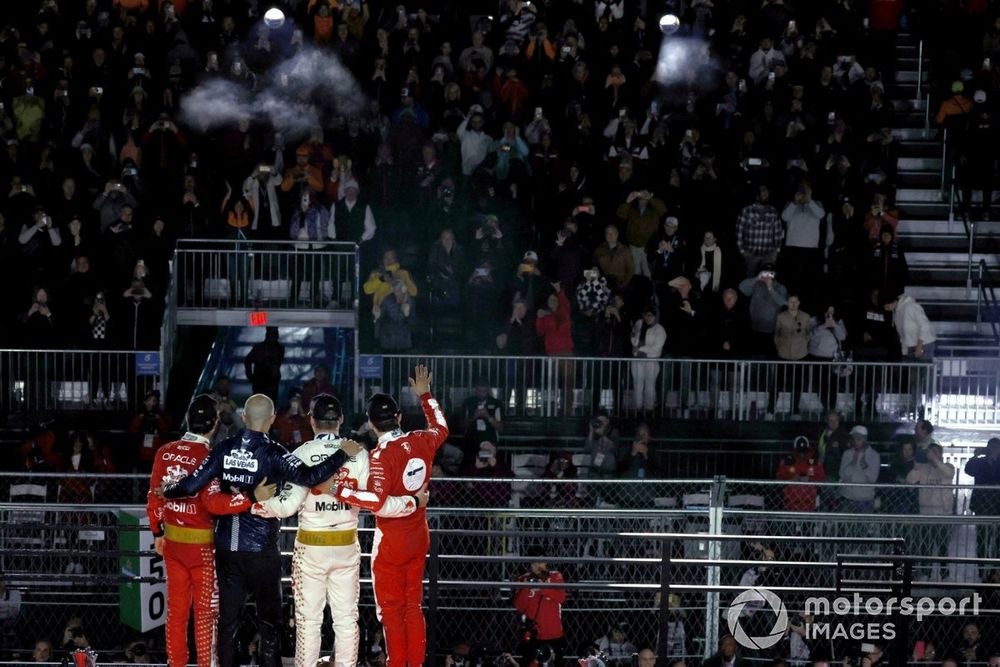
Sergio Perez, Red Bull Racing, 3rd position, the Red Bull trophy delegate, Max Verstappen, Red Bull Racing, 1st position, Charles Leclerc, Scuderia Ferrari, 2nd position, on the podium
Photo by: Glenn DuNBAr / Motorsport Images
But what mattered most for the local authorities and the casinos that supported the event was the direct financial impact, and those numbers are impressive.
It’s no coincidence that the race was scheduled for mid-November – the period before Thanksgiving has traditionally been a quiet one by Las Vegas standards, and the casinos saw F1 as a way of boosting revenues. And it worked, with the overall economic benefit created by visitor spending combined with LVGP investment on infrastructure and event operations assessed at nearly $1.5 billion.
Of that total, $884 million was attributed to F1 fans. It was determined that they spent 3.6x as much as a typical Vegas visitor, with around 20% of them coming from outside the USA.
There was also a $500m in direct investment from Liberty, including the construction of the Grand Prix Plaza, with $80m spent on road and energy infrastructure improvements. In addition, the state, county and local governments collected $77m in tax revenues – a record for any event – while $52m was generated in wages.
In other words the promises that were made in terms of the positive impact on the city were backed up by the reality, while F1 in turn reaped the benefits it has anticipated.
“The results confirmed the reasons why we went to Vegas,” F1 CEO Stefano Domenicali said. “There was a possibility for the American market to host another race. We felt that Vegas could be a great opportunity.
“Don't forget that we did everything in 15 months. It's been a terrific job by the people in Vegas from Liberty, from LVGP, led by [race CEO] Renee Wilms, and all the staff, to put in place a unique event.
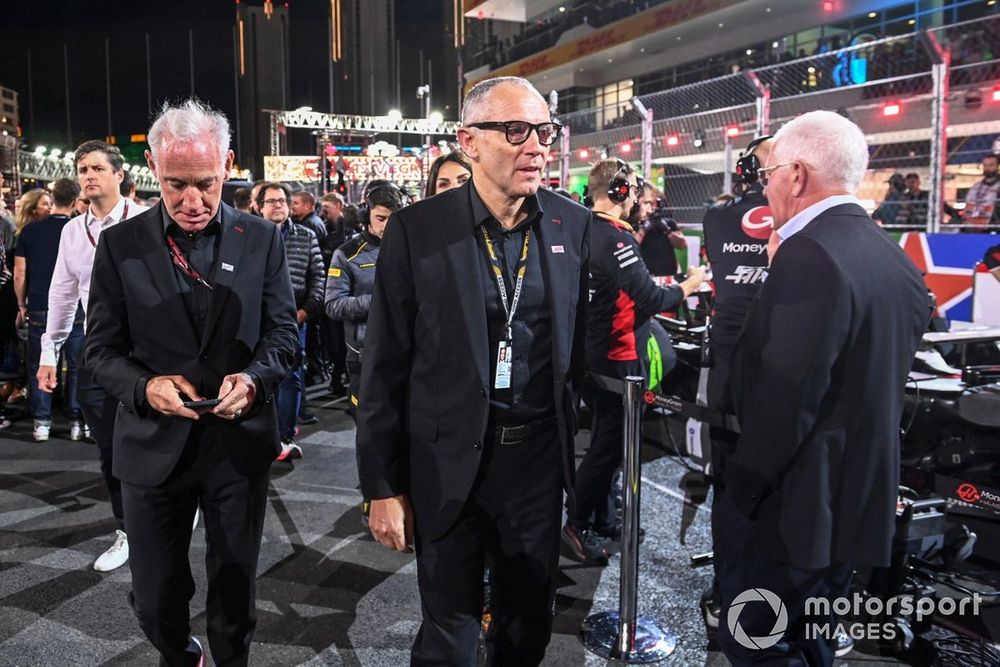
Stefano Domenicali, CEO, Formula 1
Photo by: Mark Sutton / Motorsport Images
“This year will be much less intrusive, the work that we're going to do in the city, because the basis has been already done. This is something that will be part of the first-year experience.
“If you look at the result of the economic impact on the city, it confirmed it was an incredible event. Much bigger than the Superbowl, just to give a reference.”
Liberty has been cagey on detailing the specific financial benefits for the company – it cites the fact that it never gives details on earnings from other races – but it’s clear that the event did what it was supposed to do, not just in financial terms but also in raising F1’s profile.
“It worked, and above all it worked in terms of the general perception of the image of F1 in Vegas, the image that was brought all around the world,” Domenicali concluded. “That was as important as a first year as the direct economic impact, and what it has been for Liberty to invest.
“Of course, we want to make sure that the investment as Liberty will be renewable, and this will happen, and this is the reason why year-by-year you will see that element grow.”
Liberty Media CEO Greg Maffei believes the financial picture will only get better as the one-off start-up costs are absorbed. Meanwhile the pit building and surrounding land will find other year-round uses and start to generate income.
“With the benefit of more time there are many things we can optimise,” he explained. “For example, there's a temporary structure, a bridge that was put over one of the roads that was our cost, that will not be reincurred.
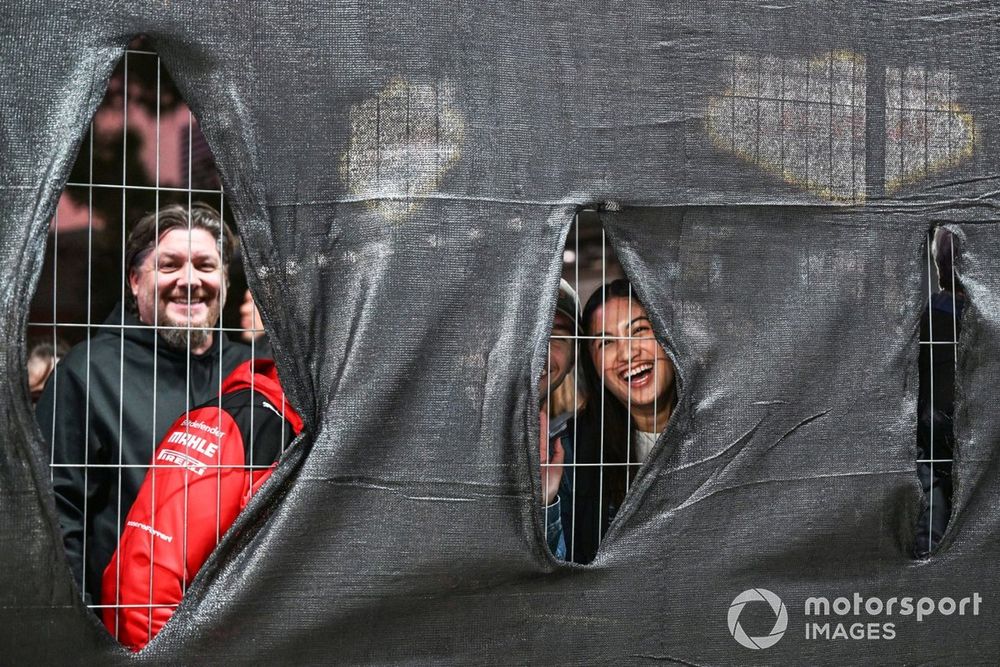
Fans tear holes in netting on the catch fence for a better view
Photo by: Simon Galloway / Motorsport Images
“There was work that was done around ensuring great security, I think we'll learn how to do that in a more cost-effective manner.
“I can say that LVGP was a positive content contributor to FWON's earnings for 2023, and with the cost optimisation measures we've discussed, and frankly improved interest in the race and improved potential price points, I think we will see a greater contribution in 2024.”
Domenicali concedes that not everything went to plan, but he believes the second year will run more smoothly.
One of the major criticisms of the first event was the cost of tickets and focus on big spenders and VIP hospitality.
That changes in 2024 with a new range of cheaper tickets, and in an effort to appeal to locals, Nevada residents were given a three-day head start on the rest of the world when they went on sale last month.
“In terms of offering some experience for example to let's say, not high-end spending fans, some experience, because that's part of the Game, we need to do it,” says Domenicali.
“This is the new step, to give the possibility also to new fans, because we have the opportunity to show to them, so that's the reason why this year we will open up for a general admission ticket for the first time.
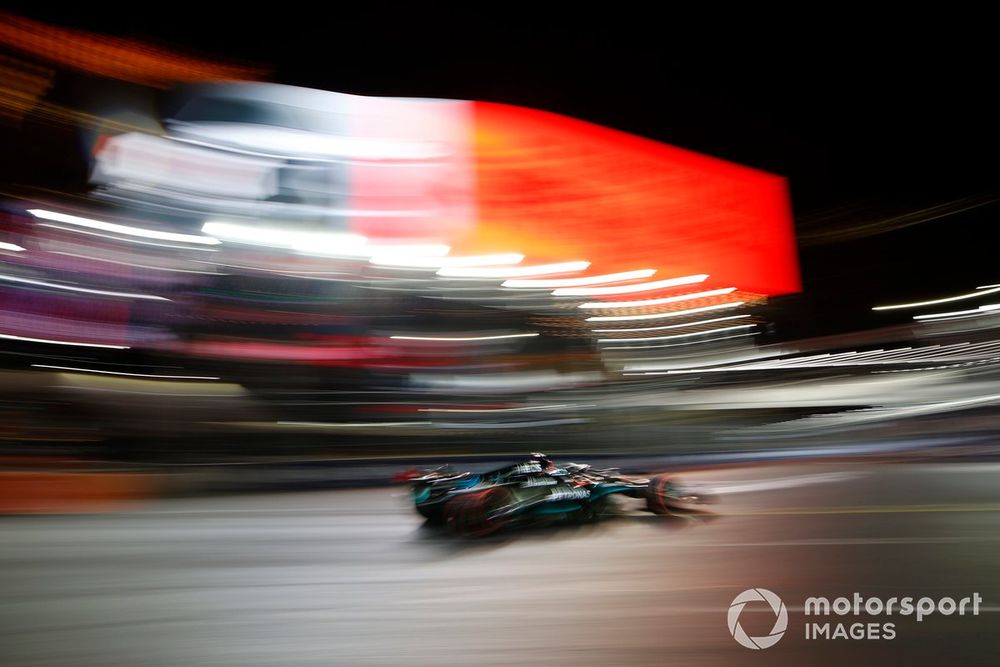
George Russell, Mercedes F1 W14
Photo by: Andy Hone / Motorsport Images
“We do not have to forget in that market a lot of people do not know yet what is F1. So we have also that duty to make sure that we will give to a new audience the possibility to come."
It will be intriguing to see how the second event unfolds in terms of both public and corporate interest. The novelty value will be gone, but will that be overtaken be extra interest from those who held off in the first year because they wanted to see how it all worked out?
One thing is certain – Liberty has no plans to repeat the Las Vegas experiment and become the promoter of other events.
“We went in and promoted Vegas for a variety of reasons,” Maffei said. “We thought it was a unique opportunity to promote the sport, we thought it was unique economic opportunity, we thought we would learn a lot about being a promoter and make us more credible with other promoters.
“I do not know that there are many opportunities out there like Vegas where we're going to say we absolutely want to do this. There may be opportunities in the future where we can partner with promoters.
“Some promoters are short on capital; some promoters are short on some skills. There are things that we could bring to the table. But in many cases, our promoters bring local knowledge, local contacts, local strengths, that are very valuable. We wouldn't necessarily be able to supplant those.
“So in some way to think about enhancing that and working together, I think that's the more likely path than thinking we're going to become a promoter of a bunch of races.”
Watch: F1 2024 Japanese Grand Prix Preview - Everything You Need To Know
-
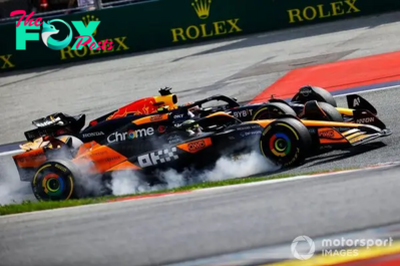
 F1 News4m ago
F1 News4m agoStella: Verstappen/Norris Austrian GP clash caused by unpunished 2021 F1 moves
-
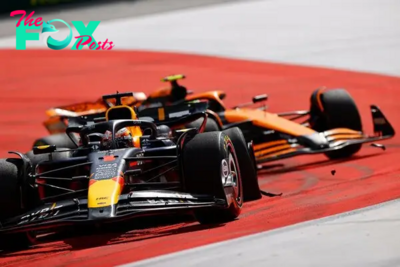
 F1 News4m ago
F1 News4m agoVerstappen denies aggression, moving under braking in Norris Austria crash
-
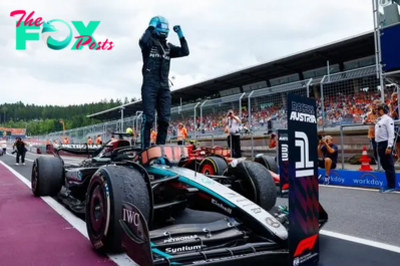
 F1 News4m ago
F1 News4m agoF1 Austrian GP: Russell inherits victory as Verstappen and Norris collide
-
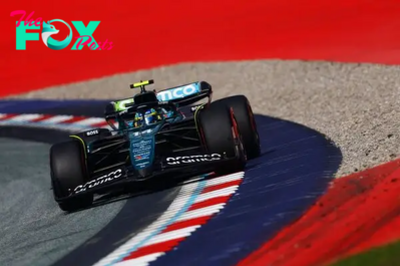
 F1 News4m ago
F1 News4m agoF1 drivers back Austria GP track limits experiment
-
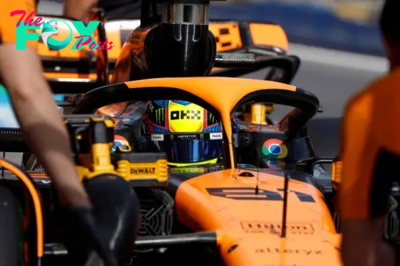
 F1 News4m ago
F1 News4m agoMcLaren's Piastri protest into F1 track limits rejected as “inadmissible”
-
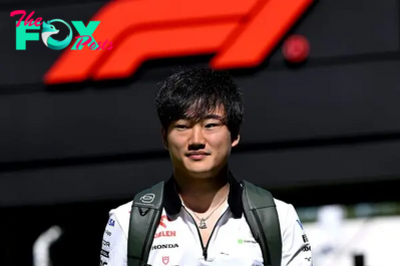
 F1 News4m ago
F1 News4m ago‘Horrified’ Tsunoda fined for using slur in F1 Austria qualifying
-
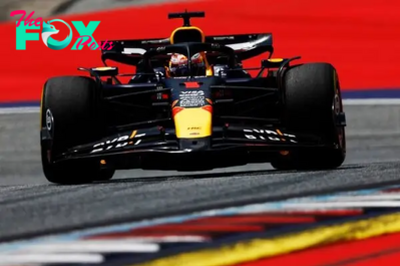
 F1 News4m ago
F1 News4m agoF1 Austrian GP qualifying results: Max Verstappen takes pole
-
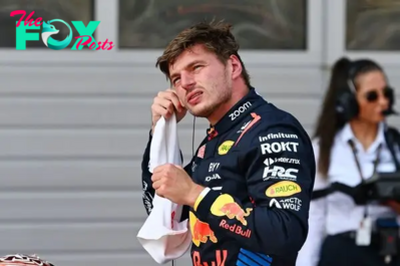
 F1 News4m ago
F1 News4m agoVerstappen escapes punishment for Austrian GP outlap slow driving
